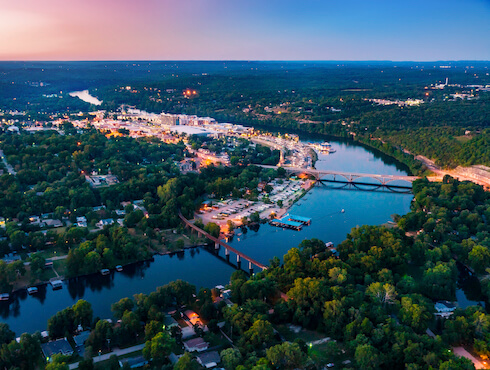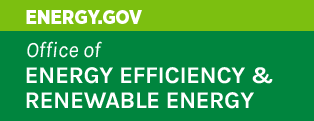Ozarks Clean Fuels Coalition
The Ozarks Clean Fuels Coalition works with vehicle fleets, fuel providers, community leaders, and other stakeholders to identify community-driven choices that save energy and promote the use of alternative fuels and advanced vehicle technologies in transportation.

901 S. National Avenue
Springfield, MO 65897
Douglas
Neidigh
417-988-0799
neidigh2009@missouristate.edu
General Stats
- Designated: December 12, 2024
- Population: 1,145,221 (based on 2024 Census estimate)
- Area: 20,207 sq. mi.
- Local/Regional Service Area: Counties: Bates, Henry, Benton, Vernon, St. Clair, Hickory, Cedar, Barton, Polk, Dallas, Laclede, Dade, Jasper, Lawrence, Greene, Webster, Wright, Texas, Shannon, Newton, McDonald, Barry, Stone, Christian, Taney, Douglas, Ozark, Howell, Oregon, Shannon
Alternative Fueling Stations
Including public and private stations

- Biodiesel (B20 and above): 28
- Electric (charging outlets): 428
- Ethanol (E85): 50
- Hydrogen: 0
- Natural Gas: 2
- Propane: 18

Douglas Neidigh
Doug Neidigh works for Missouri State University (MSU) as the Sustainability Unit Manager for the Ozarks Environmental and Water Resources Institute (OEWRI) and as Director for the Ozarks Clean Fuels Coalition (OCFC) which is hosted by OEWRI. Doug has over 27 years of experience in environmental management, energy management, and energy efficiency. He provides technical assistance and overall energy efficiency resources to organizations throughout the state. Over his career, Doug has worked in private manufacturing, state and local government, consulting, healthcare, and academics and has acquired and managed numerous state and federal grant projects. Doug is a Registered Environmental Manager (REM) with the National Registry of Environmental Professionals (NREP), and a Certified Energy Auditor (CEA) with the Association of Energy Engineers (AEE).
Doug is also a founding member of the Ozarks Clean Air Alliance (OCAA) in southwest Missouri. The OCAA works to improve air quality in the region by working with businesses, municipalities, institutions, nonprofits organization, and the general public, to develop and implement air quality strategies. These strategies include, but not limited to, the promotion of alternative fuels for personal and fleet vehicles, alternative transportation and commute projects, diesel emissions reductions, idle reduction technologies and practices, utility emissions reductions, overall energy conservation programs, general education and technical assistance, and community outreach.
